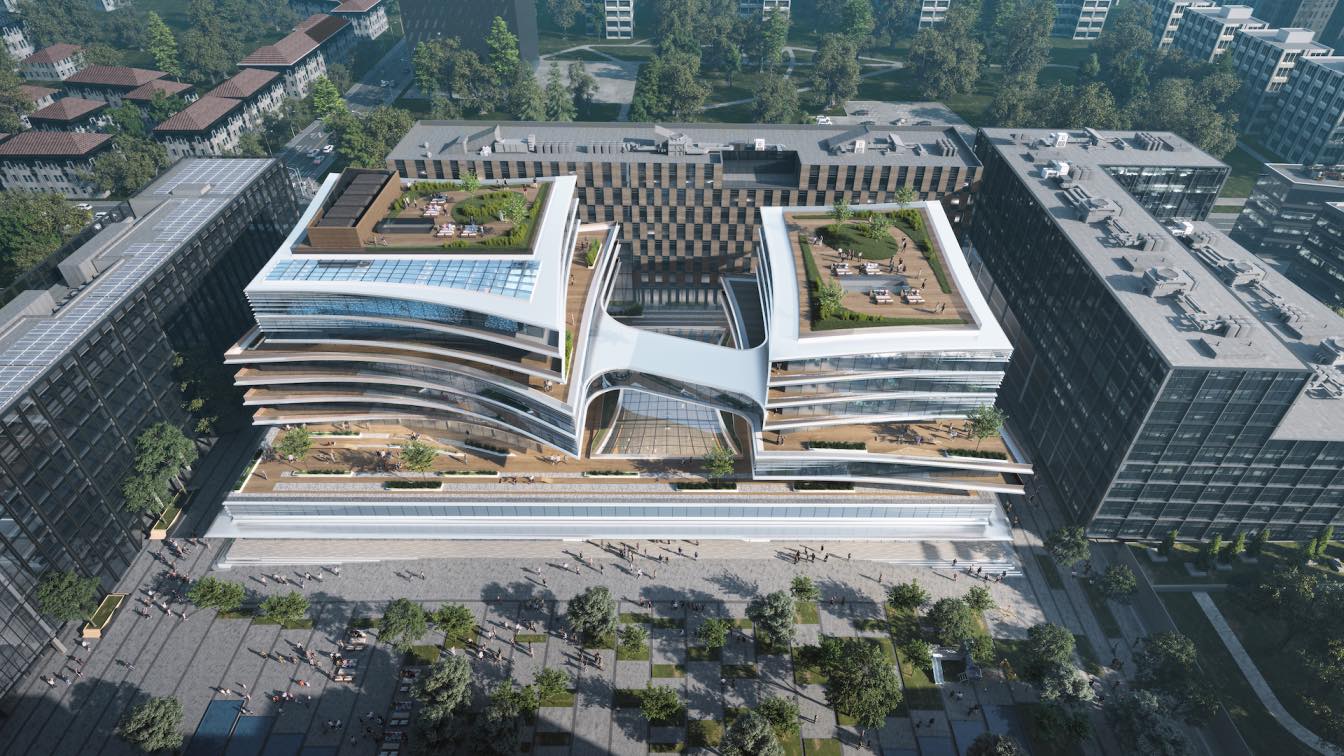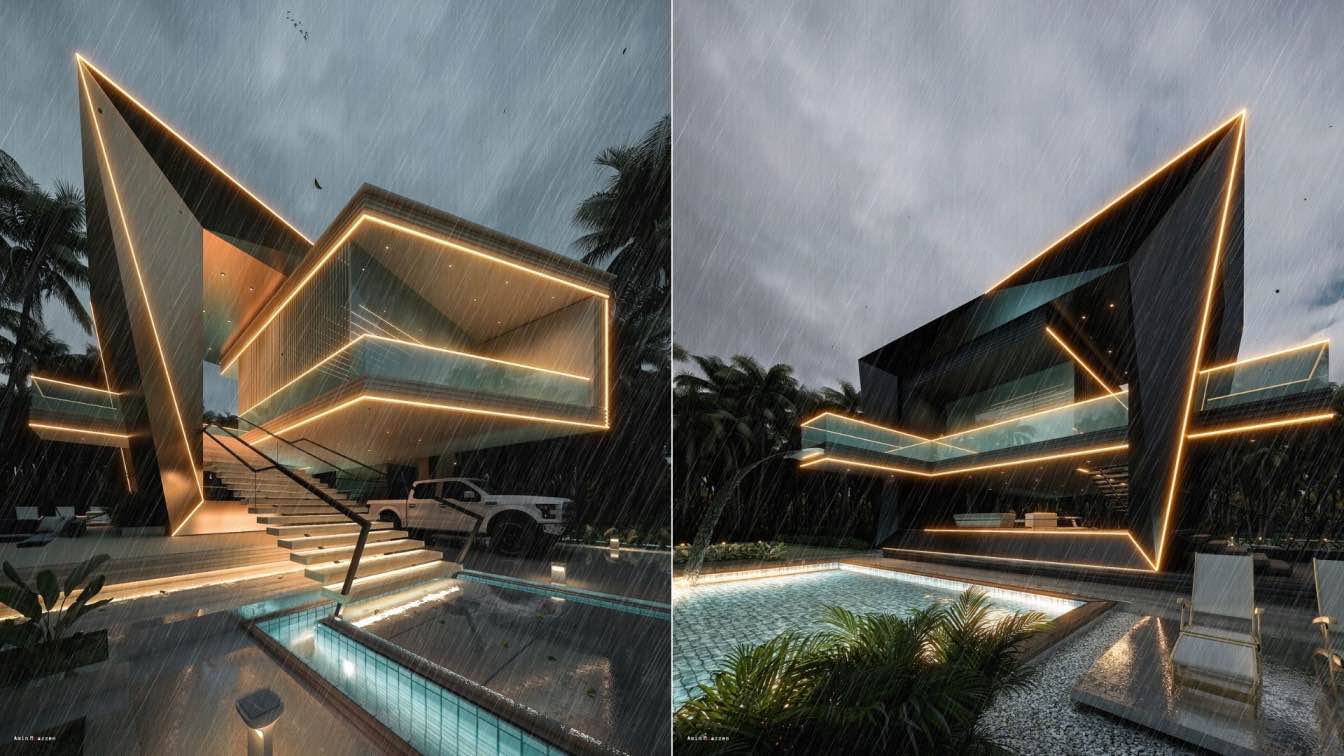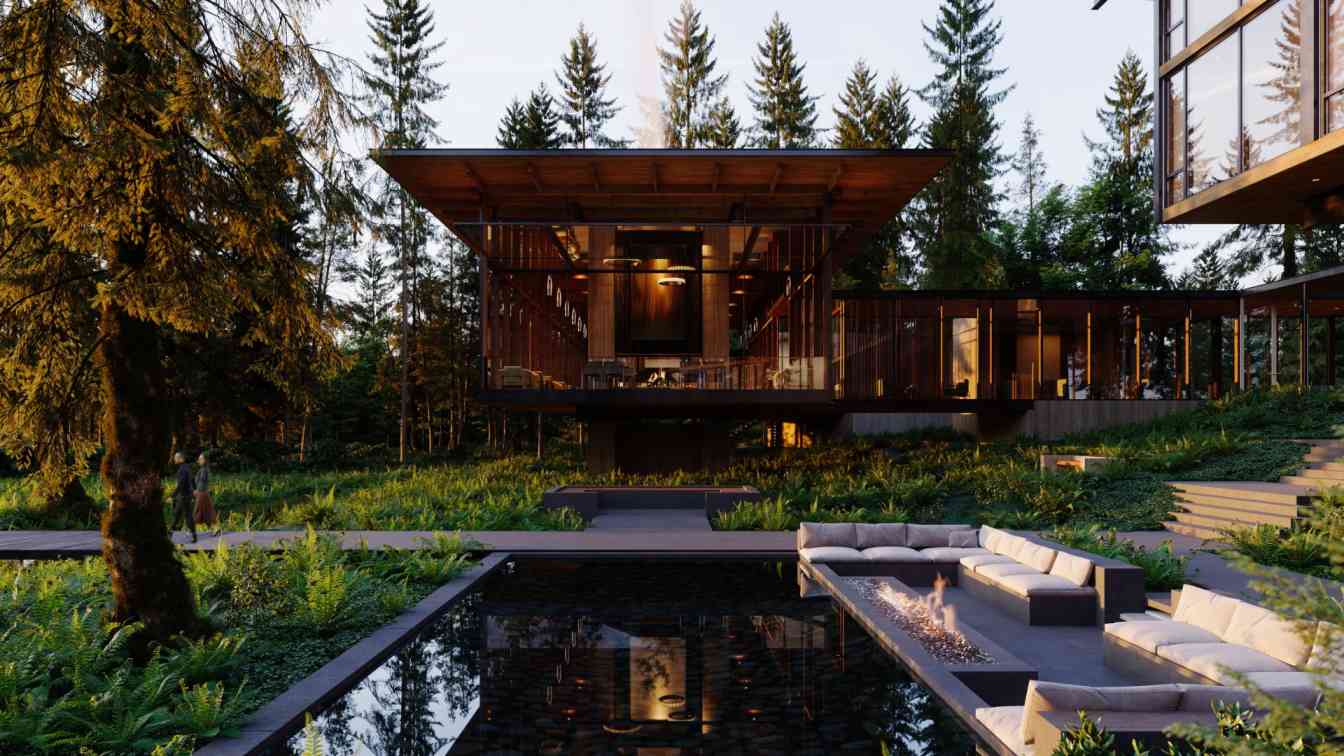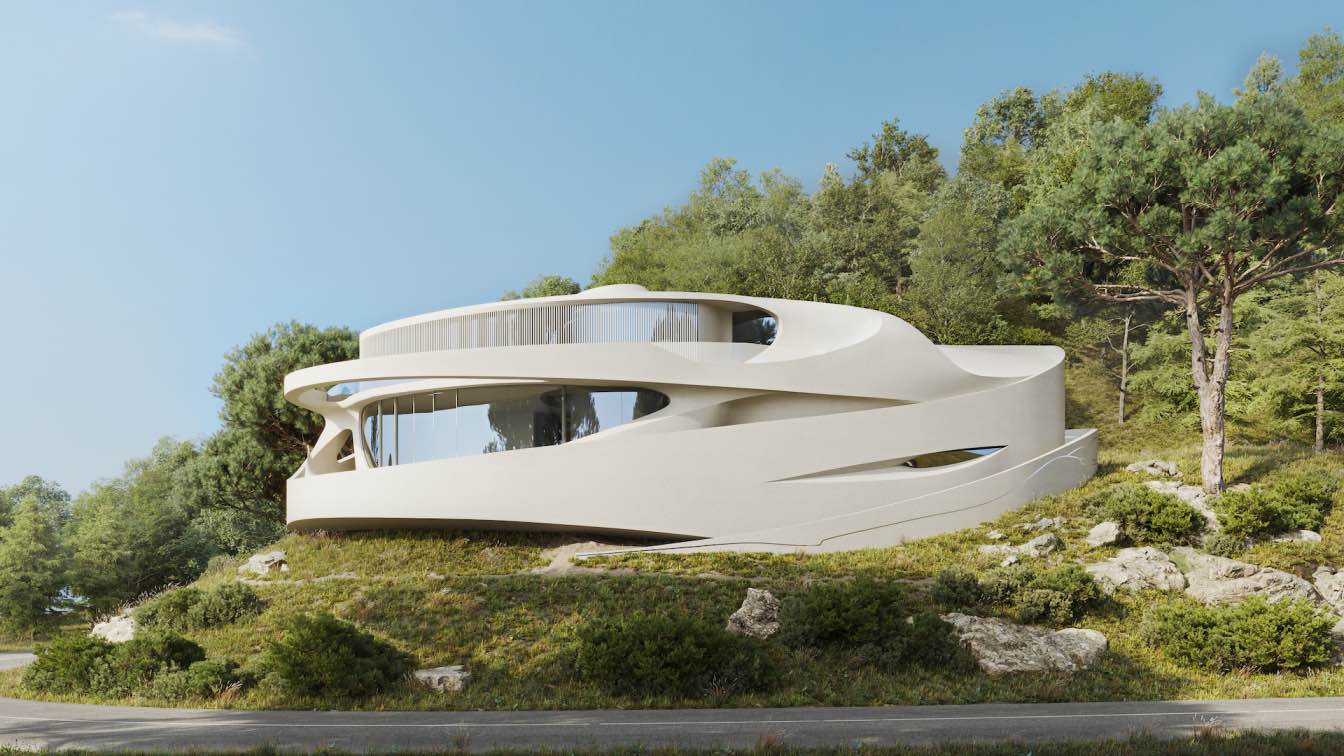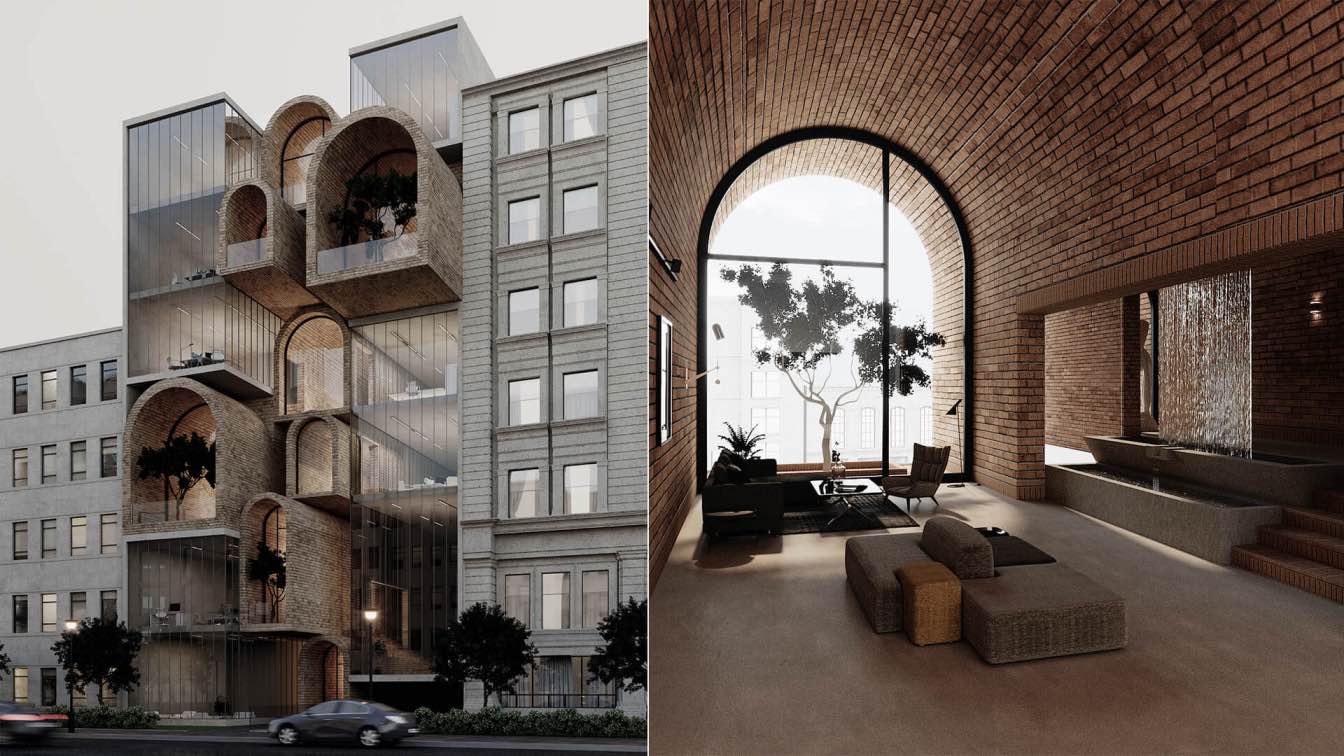Zaha Hadid Architects: Integrated within the Vilnius City Plan and the popular public square adjacent to the site, Business Stadium Central will be a new gathering place for the city.
Consisting of two low-rise towers of 8 and 9 storeys connected at street level by a courtyard atrium and two floors of public amenities, the centre’s 24,000 sq. m design also connects its two towers via a skybridge at level five. The curvature of the centre’s facades and its cantilevered balconies face towards the historic Gediminas Castle Tower in the heart of the city.
Reinterpreting the dynamic geometries of the neighbourhood’s existing civic architecture, Business Stadium Central’s design incorporates 11,750 sq. m of landscaped terraces, roof gardens and plazas that open directly onto the public square designed by Martha Schwartz. Lined with cafes, restaurants and shops, its atrium courtyard serves local residents, office workers and visitors. Elevators lead to top floors where the two public swimming pools, saunas, steam rooms and sun decks have panoramic views over Vilnius’ historic Old Town.
Flexible office spaces located within the central floors of each of the towers are designed with maximum adaptability to extend the life-cycle of the development. Differing in size and layout to suit a variety of companies from new start-ups to established international corporations, these workplaces connect with landscaped roof gardens and terraces offering views of the surrounding city. The centre’s glazed facades with precisely engineered external louvres transform into the warmer timber- based material palette of Business Stadium Central’s interiors.

Located within Vilnius’ humid continental climate, annual solar analysis has defined the composition of the façade’s louvres and balconies to reduce direct exposure from the summer sun while optimizing solar heat gain in colder periods. These external shading devices are aligned with the sun’s lower altitude between October and April of approximately 38 degrees and are perpendicular to the highest position of the sun in Vilnius’ summer sky of 151 degrees.
Sustainable building systems will reduce the development’s embodied carbon in construction and its energy use in operation. Digital optimization design processes have minimised the amount of materials required for the structure and are integrated with procurement systems that increase the project’s recycled content. The timber for the interiors will be from certified local sources and included within the project’s overall supply chains that have been established to reduce delivery distances. Allspecified materials are evaluated to enable disassembly and reuse at the end of the building’s operational life.
Using natural hybrid ventilation for most of the year, high-efficiency heat exchange and recovery systems will reduce energy consumption while double-insulatedlow-E glazing provides excellent levels of natural throughout all public spaces and workplaces.
With construction planned to start in the second quarter of this year, Business Stadium Central creates a variety of new public spaces and amenities for the citywithin a design that integrates flexible workplaces encouraging interaction and collaboration together with extensive health and wellness facilities for use by everyone in Vilnius.





Architect: Zaha Hadid Architects (ZHA)
Design: Patrik Schumacher
ZHA Project Directors: Gianluca Racana, Ludovico Lombardi
ZHA Project Associate: Michele Salvi
ZHA Project Team: Alessandra Laiso, Alexandra Fisher, Giovanni Basile, Ivo Ambrosi, Szu-An Yao, Zrinka Radic
ZHA Competition Project Directors: Gianluca Racana, Ludovico Lombardi
ZHA Competition Associate: Davide del Giudice
ZHA Competition Project Leads: Alexandra Fisher, Jose Eduardo, Navarrete Deza
ZHA Competition Team: Maria Lagging, Lara Zakhem
Consultants
Local Architect: Unitectus Structural Engineers: Ribinis būvis Façade Engineering: Staticus MEP: Eva Danovska
Fire Engineer: GSCentras
Site Area: 6100m2
Gross Floor Area (GFA): 24000m2
Building Footprint: 5200m2
Number of Floors: 9
Height: 35m

